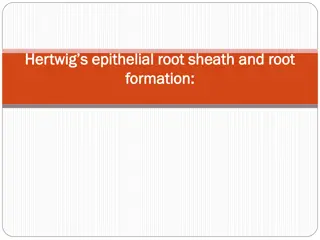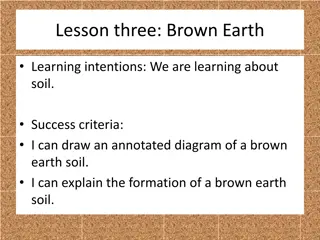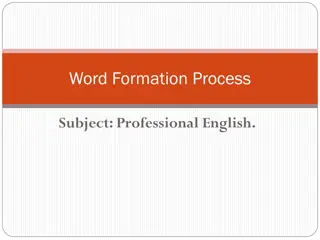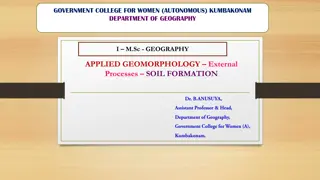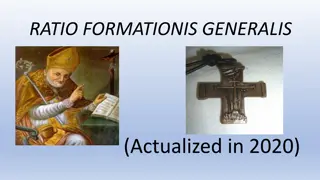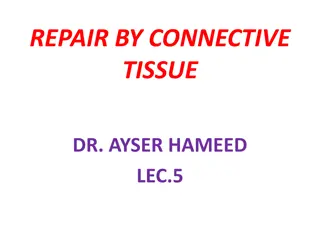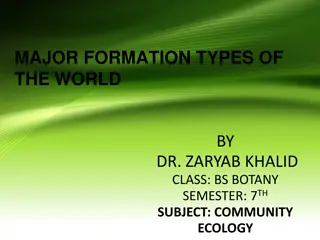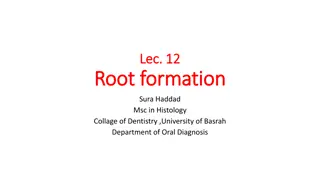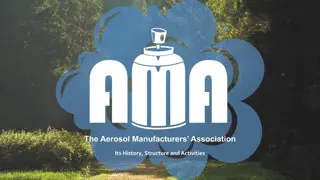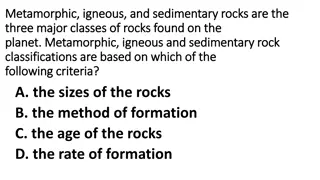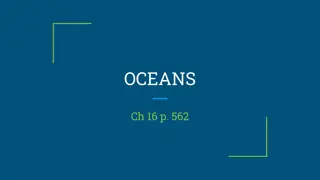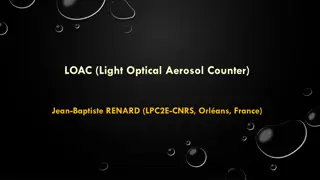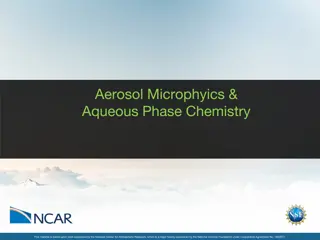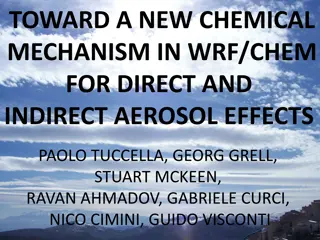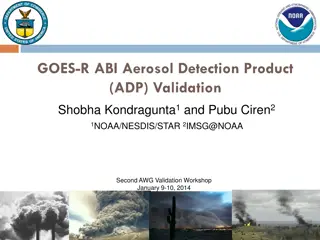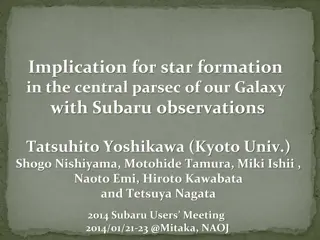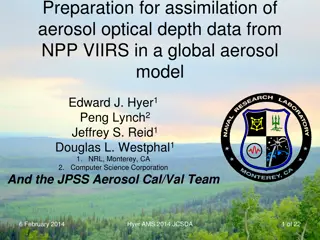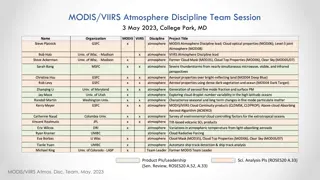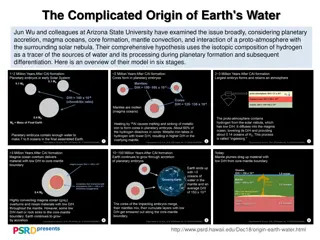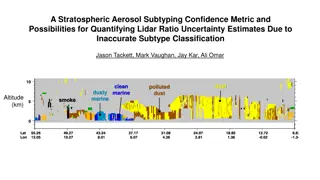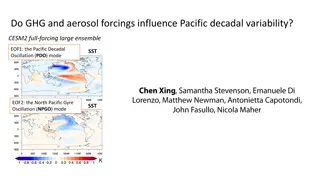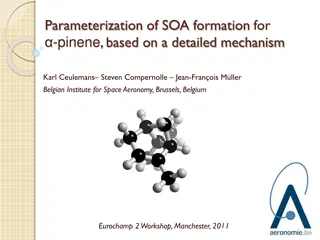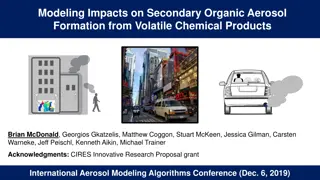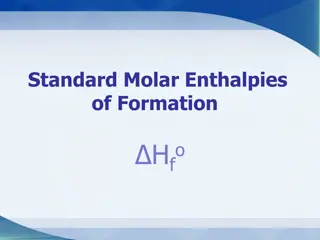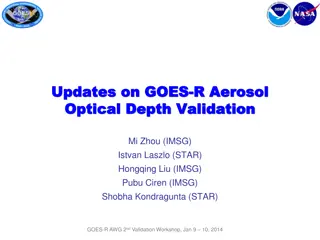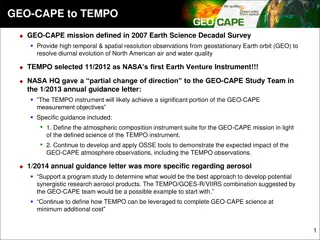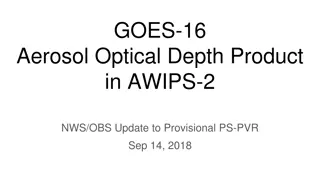Understanding the Rite of Profession for Formation in Religious Orders
The Rite of Profession plays a vital role in the formation process for those entering religious orders, emphasizing the significance of commitment, rituals, sacraments, and essential elements such as questioning, symbols, and assent. It serves as an instructive and affirming experience for individua
0 views • 21 slides
Deacon Formation Process in Diocese of Fort Worth Overview
This overview provides insights into the deacon formation and admissions process in the Diocese of Fort Worth. It emphasizes the importance of service, faith, and transformative journey in the formation process, along with stages such as initial inquiry, aspirant stage, candidate stage, ordination t
3 views • 27 slides
Evangelization and Faith Formation: Strengthening Catholic Men's Spiritual Journey
Explore the vital role of evangelization and faith formation in nurturing Catholic men's spirituality. Discover the essence of active relationship with God, ongoing formation in faith, life of prayer, and brotherhood. Learn about key elements like prayer, formation, and fraternity through initiative
1 views • 35 slides
Formation of Hertwig's Epithelial Root Sheath in Tooth Development
The formation of Hertwig's Epithelial Root Sheath (HERS) is crucial in determining the shape, length, and number of roots in teeth. It initiates the formation of radicular dentin, marking the beginning of root development after enamel and dentin formation. HERS consists of outer and inner enamel epi
0 views • 29 slides
Understanding Brown Earth Soil Formation in Temperate Broadleaved Forests
Brown Earth soils are characteristic of temperate broadleaved deciduous forests in regions like Western Europe, Russia, and North America. Deciduous trees contribute to the formation of these soils by providing a rich leaf litter that breaks down rapidly due to the mild climate. Soil organisms play
1 views • 17 slides
Understanding Cerebrospinal Fluid (CSF): Functions, Formation, and Circulation
Cerebrospinal fluid (CSF) plays a vital role in providing a controlled chemical environment, nutrient supply, waste removal, and physical support and protection to the brain and spinal cord. This fluid circulates around the central nervous system, and its formation involves processes like selective
0 views • 23 slides
Various Word Formation Processes in Professional English
Explore the word formation processes in professional English, including coinage, borrowing, compounding, derivation, blending, backformation, and acronym formation. Each process involves unique methods and examples, contributing to the diversity and richness of the English language.
0 views • 11 slides
Aerosol Can Market Current Status and Future Prospects By 2024
Global Aerosol Can Market Breakdown by Application (Personal Care, Household, Automotive & Industrial, Food, Paints, Medical) by Type (Bag-on-valve (BOV), Standard) by Can Type (Steel, Aluminum, Plastic) and by Geography (North America, South America
0 views • 8 slides
Understanding Soil Formation: Factors and Processes Explained
Soil formation is a complex process influenced by factors like parent material, topography, climate, organisms, and time. This article delves into the fundamentals of soil evolution, discussing how soils are formed from weathered rock materials and the role of pedogenesis. Factors affecting soil for
1 views • 28 slides
Evolution of the Ratio Formationis Generalis in Congregational Formation
Evolution and significance of the Ratio Formationis Generalis in Congregational Formation, from its historical development to the need for updates in response to changes in formation programs and Vatican documents. The formation of Units, Conferences, Directories, and Programs based on the Ratio, hi
4 views • 16 slides
Understanding Repair by Connective Tissue in Healing Processes
Healing or repair by connective tissue occurs in response to severe or chronic tissue injuries, leading to the replacement of nonregenerated cells with connective tissue or scar formation. This process involves the induction of fibroblast and endothelial cell proliferation, granulation tissue format
3 views • 26 slides
Company Formation Process and Role of Promoters
A company is a legal entity separate from its members, formed for a common purpose. The formation involves stages like promotion, investigation, planning, and financing. Promoters play a crucial role in initiating and incorporating a company, conducting market research, preparing business plans, and
1 views • 23 slides
Major Formation Types of the World by Dr. Zaryab Khalid - BS Botany Semester 7
This presentation by Dr. Zaryab Khalid explores the major formation types of the world in the field of community ecology. It delves into the classification of natural and cultural vegetations, the concept of formation classes and subclasses, and details the six natural formation classes along with e
2 views • 7 slides
Root Development in Tooth Growth Process
Root formation plays a crucial role in the development of teeth, starting after enamel and dentin formation at the cementoenamel junction. Hertwig's epithelial root sheath (HERS) molds the shape of roots, initiating radicular dentin formation. The cervical loop forms an epithelial diaphragm, narrowi
0 views • 23 slides
Aerosol Manufacturers' Association South Africa Overview
The Aerosol Manufacturers' Association (AMA) of South Africa, founded in 1963, aims to improve regulatory and safety standards in the aerosol industry. It conducts activities such as hosting an Annual General Meeting, electing an Executive Committee, and emphasizing on Anti-Trust obligations. AMA st
0 views • 12 slides
Understanding Rocks: Types, Formation, and Properties
Rocks can be classified as metamorphic, igneous, or sedimentary based on their formation processes. Florida's phosphate deposits and pumice formation showcase the diversity of rocks. A scientist's rock cycle model helps predict changes, while pressure on sediments leads to new rock formation. Basalt
1 views • 22 slides
Challenges and Perspectives in Catholic Board Formation
Exploring the essential aspects of board formation in Catholic educational institutions, this content delves into models of formation, institutional needs, perspectives on faith formation, questions for reflection, governance from a mission perspective, and the significance of undertaking board form
1 views • 24 slides
Exploring Earth's Oceans: From Formation to Technology
Earth's oceans are interconnected bodies of water covering about 70% of the planet. This chapter delves into the formation of oceans, the composition of seawater, the structure of the seafloor, and the technology used to explore the depths. Learn about the theories behind ocean formation, the differ
0 views • 24 slides
GOES-18 Provisional Validation Review and Products Overview
Peer and stakeholder validation review of GOES-18 Group 3 products including land surface temperature, aerosol optical depth, aerosol detection products for dust and smoke, and rain rate/quantitative precipitation estimate. Data presented in non-operational format with discussions on wintertime use
0 views • 8 slides
Light Optical Aerosol Counter (LOAC) Project Overview
Light Optical Aerosol Counter (LOAC) is a project led by Jean-Baptiste Renard in France, involving a collaboration between research institutions, private companies, and the French Space Agency. The LOAC instrument, weighing 1 kg, is used with meteorological balloons to measure concentrations of aero
0 views • 21 slides
Exploring Aerosol Microphysics and Aqueous Phase Chemistry in Atmospheric Research
This material delves into the study of aerosol microphysics and aqueous phase chemistry in the context of atmospheric research. It discusses topics such as scale-dependencies, obstacles in development, working groups for MUSICA, and the importance of various processes in aerosol modeling. The conten
0 views • 11 slides
Advancements in Chemical Mechanisms for Aerosol Effects in WRF/Chem Model
This study focuses on the development of a new chemical mechanism in the Weather Research and Forecasting with Chemistry (WRF/Chem) model to address the underestimation of carbonaceous aerosols. The RACM/MADE/SOA-VBS mechanism incorporates advancements in gas-phase chemistry and particle parameteriz
0 views • 12 slides
GOES-R ABI Aerosol Detection Product Validation Summary
The GOES-R ABI Aerosol Detection Product (ADP) Validation was conducted by Shobha Kondragunta and Pubu Ciren at the NOAA/NESDIS/STAR workshop in January 2014. The validation process involved testing and validating the ADP product using proxy data at various resolutions for detecting smoke, dust, and
1 views • 21 slides
Evolution of Compact Star-Forming Galaxies and Quiescent Galaxies
The evolution of galaxies from compact star-forming to quiescent states involves processes such as secular evolution, gas inflows, and star formation quenching. By studying the structural relations and star formation in these galaxies, insights are gained into their transition towards quiescence. Th
0 views • 12 slides
Vaping Awareness Presentation for South Carolina Department of Alcohol & Other Drug Abuse Services
This presentation for the South Carolina Department of Alcohol and Other Drug Abuse Services focuses on educating educators, schools, and parents about vaping trends, youth vaping dangers, state-specific information, and resources available for parents and professionals. It covers topics such as wha
0 views • 37 slides
Tactical Formation Maneuvering for T-44C Aircraft
This presentation provides essential knowledge for conducting tactical formation flights in the T-44C aircraft, covering formation types, fundamentals, maneuvers, and division formations. It outlines the importance of formation unity, maneuverability, and coordination, along with considerations like
0 views • 41 slides
Understanding Uncertainties in Direct Radiative Forcing of Aerosols
The uncertainties in the direct radiative forcing of aerosols can be assessed by considering factors such as emissions, lifetime, Mass Absorption Cross Section (MAC), Aerosol Absorption Optical Depth (AAOD), and forcing efficiency. Variations in these factors contribute to the overall uncertainty in
0 views • 9 slides
Implications of Star Formation in the Central Parsec of Our Galaxy with Subaru Observations
Researchers presented implications of star formation in the central parsec of our Galaxy using Subaru observations at the 2014 Subaru Users Meeting. The study focused on the supermassive black hole Sgr A* and the challenges posed by conditions in the Galactic Center for star formation. Various scena
0 views • 30 slides
Assimilation of NPP VIIRS Aerosol Optical Depth Data in Global Model
Preparation and assimilation of aerosol optical depth data from NPP VIIRS into a global aerosol model, including product descriptions, data requirements, processed observations, and conclusions on VIIRS aerosol products. Details on AOT, APSP, SM classification, and environmental data records are cov
0 views • 19 slides
MODIS/VIIRS Atmosphere Discipline Team Session - May 2023, College Park, MD
The MODIS/VIIRS Atmosphere Discipline Team hosted a session in May 2023 at College Park, MD, focusing on various aspects of atmospheric science. The session included presentations on aerosols, clouds, data access, continuity products, and new science products. Speakers discussed topics such as ambie
0 views • 4 slides
The Complicated Formation of Earth's Water: A Detailed Overview
Jun Wu and colleagues at Arizona State University have developed a comprehensive model to explain the origin of Earth's water through stages such as planetary accretion, core formation, and interactions with the solar nebula. By tracing the isotopic composition of hydrogen, they explore how water so
0 views • 7 slides
Stratospheric Aerosol Subtyping Confidence and Lidar Ratio Uncertainty
This research delves into the classification confidence of stratospheric aerosol subtypes and possibilities for quantifying uncertainties in lidar ratio estimates due to inaccurate classification. It discusses CALIOP initial aerosol lidar ratios, optical properties of stratospheric aerosol layers, c
0 views • 15 slides
Influence of GHG and Aerosol Forcings on Pacific Decadal Variability in CESM2
The study investigates how greenhouse gas (GHG) and aerosol forcings impact Pacific decadal variability (PDV) through the analysis of CESM2 full-forcing large ensemble data. It explores the influence on the Pacific Decadal Oscillation (PDO) and North Pacific Gyre Oscillation (NPGO) modes, long-term
0 views • 5 slides
Understanding SOA Formation for α-Pinene Using Detailed Mechanisms
This content discusses the parameterization of secondary organic aerosol (SOA) formation for α-pinene based on a detailed mechanism, outlining the BOREAM model for simulations, incorporating explicit and generic chemistry. Various experiments and simulations in smog chambers are analyzed, revealing
0 views • 21 slides
Understanding Secondary Organic Aerosol Formation from Volatile Chemical Products
This research explores the impacts of volatile chemical products (VCPs) on secondary organic aerosol (SOA) formation. By identifying chemical tracers, assessing VCP contributions, and analyzing VOC emissions in different cities, the study aims to enhance our understanding of air quality and sources
0 views • 16 slides
Understanding Standard Molar Enthalpies of Formation
Formation reactions involve substances being created from elements in their standard states, with the enthalpy change known as the standard molar enthalpy of formation (Hf). This enthalpy represents the energy released or absorbed when one mole of a compound is formed from its elements in their stan
0 views • 13 slides
Updates on GOES-R Aerosol Optical Depth Validation Activities
Generated proxy data algorithm enhancements for post-launch validation activities were discussed at the GOES-R AWG 2nd Validation Workshop in January 2014. The use of MODIS reflectances as a proxy for ABI to retrieve Aerosol Optical Depth (AOD) was emphasized, along with the importance of AERONET gr
0 views • 25 slides
Near-UV Satellite Observations for Retrieving Aerosol Properties
Near-UV satellite observations offer a valuable method for retrieving aerosol properties, including aerosol optical depth, absorption, layer height, and surface albedo. These observations provide advantages like sensitivity to aerosol properties and negligible gas absorption interference. However, c
0 views • 16 slides
Evolution of GEO-CAPE: Leveraging TEMPO for Atmospheric Observations
The GEO-CAPE mission, defined in the Earth Science Decadal Survey of 2007, aims to provide high-resolution observations from geostationary Earth orbit to monitor North American air and water quality. NASA's TEMPO instrument, selected in November 2012, plays a crucial role in achieving GEO-CAPE's obj
0 views • 5 slides
Overview of GOES-16 Aerosol Optical Depth Products and SoCal/Baja Weather Conditions
This content provides information on various products derived from the GOES-16 satellite, including aerosol optical depth measurements in different sectors and menus available. It also includes weather conditions in the Southern California/Baja region on September 9, 2018, as reported by the Phoenix
0 views • 7 slides



